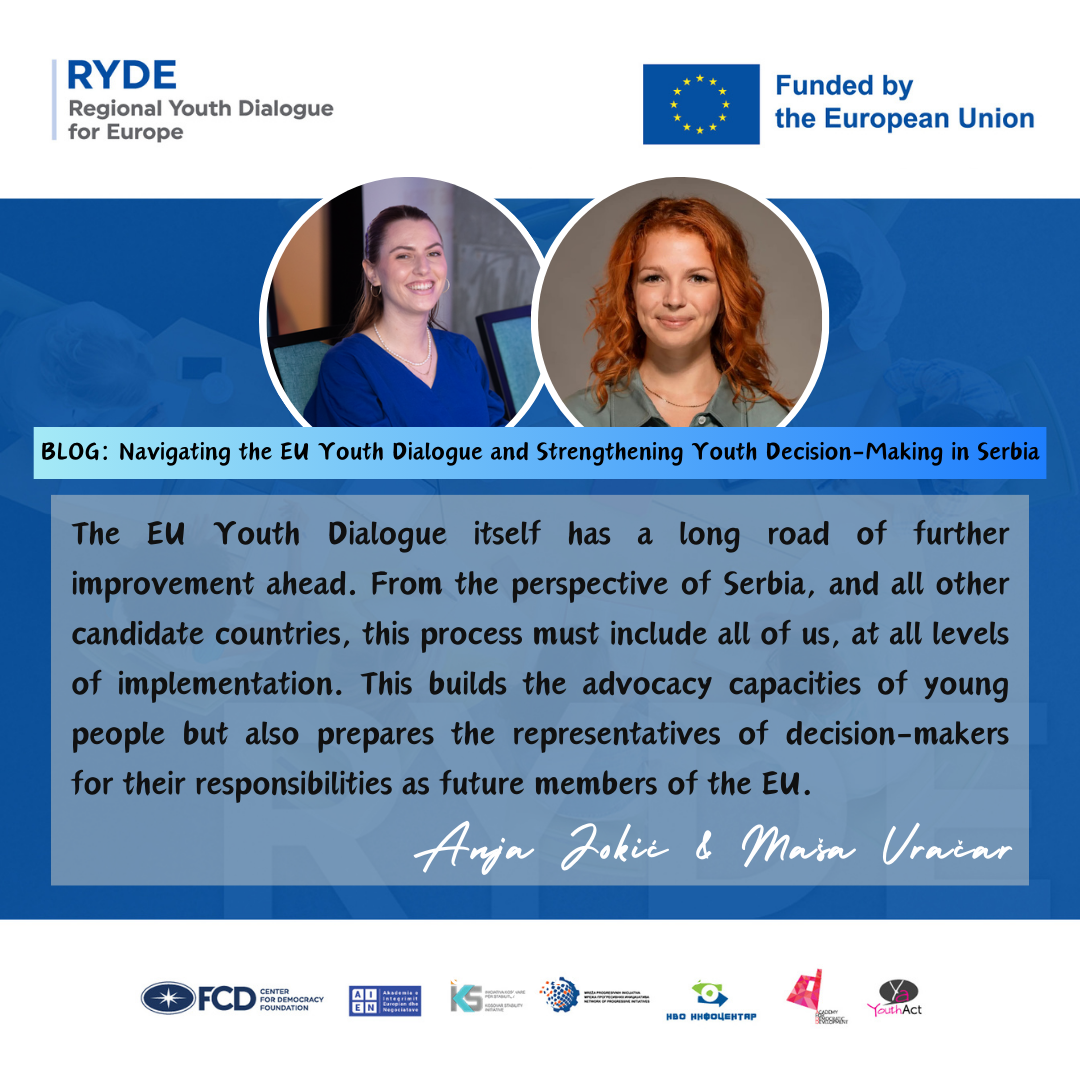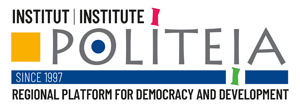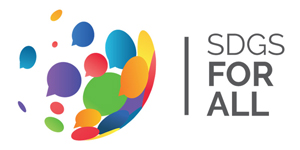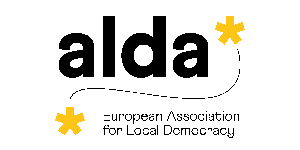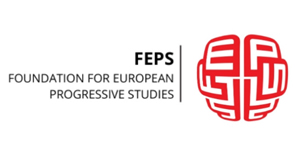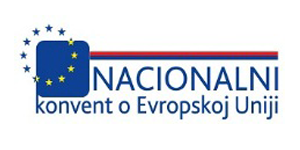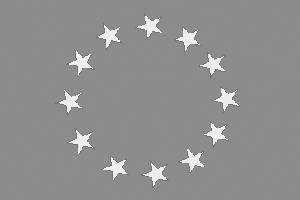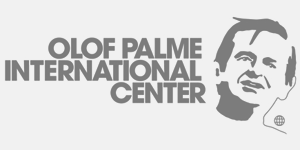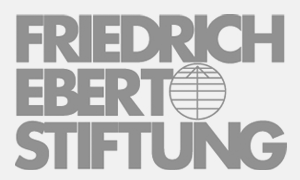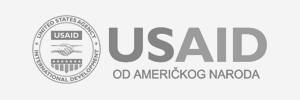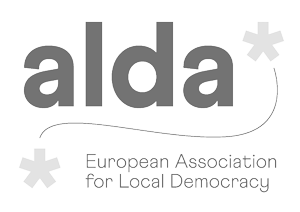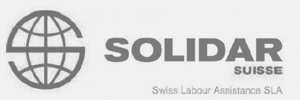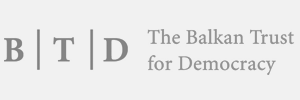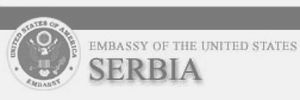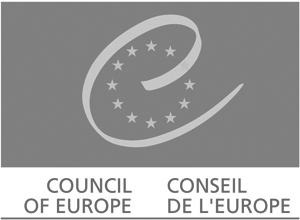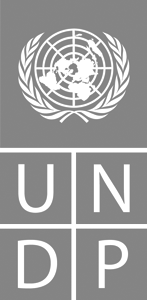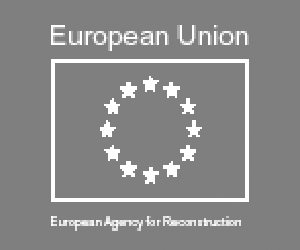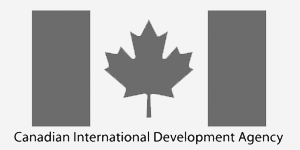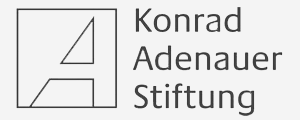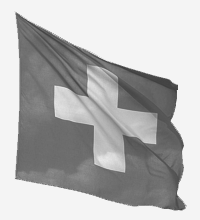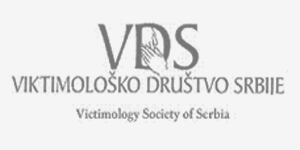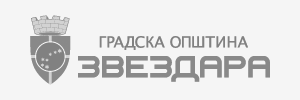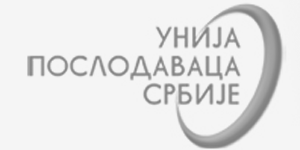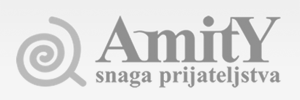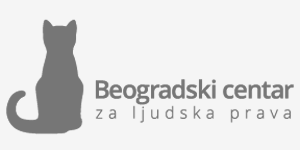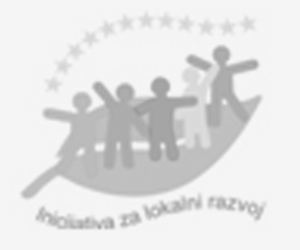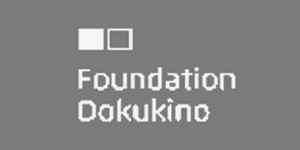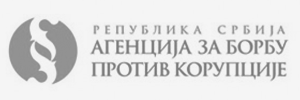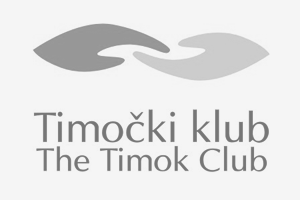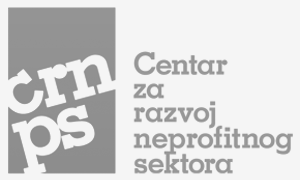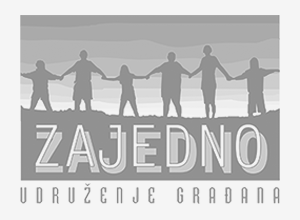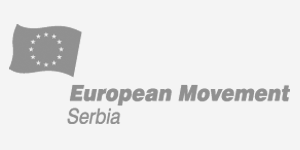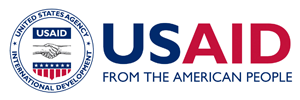Navigating the EU Youth Dialogue and Strengthening Youth Decision-Making in Serbia
Regional Youth Dialogue for Europe project
The EU Youth Dialogue (EUYD), formerly known as Structured Dialogue, is a mechanism implemented at the European Union (EU) level to address youth issues and needs. Through this dialogue, decision-makers gain insight into the concerns and demands of young people, enabling them to make informed decisions that are in the best interest of the youth. Simply put, the EUYD provides a platform for young people to participate in the political decision-making process and make their voices heard.
Aligned with the EU Youth Strategy 2019-2027, EUYD supports its implementation and encourages cooperation between EU countries on issues relating to young people with a primary focus on three core areas - connect, engage, and empower. Each dialogue cycle lasts for 18 months and focuses on one topic related to one of the 11 European Youth Goals. Guiding the implementation of the EUYD Trio Presidency closely cooperates with the European Commission, the National Agencies, the European Youth Forum and other non-governmental youth organizations, within a coordination group. Throughout the cycle, input from young people is gathered on all levels and through different forms of consultations such as EU youth conferences, Europe-wide surveys, nationwide events, different projects and local events.
The EU Youth Conference is the key event and is organized twice a year by the country holding the EU Presidency. During the conferences, young people, policy-makers, as well as experts, researchers and representatives of civil society work together, compile the results of the EUYD activities and develop common messages to the EU. The Council of the EU may adopt a policy document based on these outputs aimed at improving the position of young people across the EU.
The 10th cycle called “We Need Youth” runs from July 1, 2023, to December 31, 2024, under the presidency of Spain, Belgium, and Hungary. It is focused on implementing Youth Goal #3 “Inclusive societies” and aims to youth engagement, foster inclusivity, and celebrate the dialogue's achievements.
Western Balkans Youth Lab: Paving the Way for Inclusive Decision-Making
Unfortunately, young people and policy-makers from the EU candidate countries are excluded from this process. To bridge this gap Regional Cooperation Council kicked off Western Balkans Youth Lab (WBYL), an EU-funded project which aims to provide opportunities for youth to participate in decision-making in the Western Balkans (WB).
WBYL is based on the EUYD methodology and it strives to create a long-term structured regional dialogue between youth organisations and national administrations, focusing on jointly developing policies which increase youth participation in decision-making, youth mainstreaming of policies, and improve the overall socio-economic environment and mobility of youth in the WB economies.
Since 2020, two Youth Policy Labs have been implemented. The first one on Youth Unemployment, and the second on Youth Mental Health. In the beginning, young people and policymakers from the Western Balkans 6, including Serbia underwent training on the Methodology and Model, which was followed by the establishment of the Regional and National Pool of Experts. The experts were provided with opportunities to convene through both online and offline meetings, as well as Mid-Term and Final Conferences, with the goal of co-designing programs and policies relevant to young people.
Structuring the EU Youth Dialogue in Serbia
For the last four years, Serbia has been a clear leader in the implementation of the EUYD outside the EU borders and as such, should serve as a focal point for the region (and other candidate countries), providing valuable insight into how different aspects of the mechanisms can be implemented in the candidate countries.
Two programmes led by the National Youth Council of Serbia (KOMS), on the national and local levels, are based on the EUYD methodology. On the national level, since 2019, KOMS has conducted dialogues with young people and key decision-makers such as the Youth Dialogue with the Prime Minister, the (former) Minister for Youth and Sports, and other actors such as the Commissioner for the Protection of Equality. These dialogues provide space for young people to point out the challenges they face in Serbia, and propose concrete, evidence-based measures to solve them. On the local level, KOMS implements a programme named “Odlučionice”. The programme connects representatives of Local Self-government Units (municipalities and cities), student parliaments, and civil society organizations which undergo joint training learning about youth policy, activism, and youth participation in local communities. Upon that, they become part of the network of local coordinators for dialogue with young people working to improve the cooperation between young people and decision-makers. The local coordinators begin their joint work by implementing a community initiative created through the program.
To further standardize the implementation in Serbia, the Permanent Expert Team on the EUYD was established in 2021. The Team is based on the model of the National Working Groups for the implementation of the EUYD which are established in the EU member states to coordinate youth policies and standardized practices for involving young people in decision-making processes. Representatives of the Ministry of Tourism and Youth, the Ministry of European Integration, the National Association of Youth Workers, the Tempus Foundation, and KOMS are represented in the Permanent Expert Team. An intersectoral coordination group, which only EU member states have, represents an important step and the potential for youth and their active participation. Its institutionalization within the Advisory Youth Council of the Government of the Republic of Serbia ensures that youth recommendations are the key element for the development of youth and other relevant policies.
Dialogue Implementation in Serbia - A Deep Dive into the Challenges
The EUYD implies active participation in decision-making processes, which is based on the principle of co-management. Young people and decision-makers discuss youth-relevant topics in a structured way and agree on potential solutions. This kind of dialogue is often absent in local communities, and the existing mechanisms (if they exist) are often not utilized in reality, hence not fulfilling their role. According to data on local youth policy published by KOMS in 2021, indicates that 54.5% of the local Advisory Youth Councils, as instruments of local youth policy, are not functional or inclusive in the vast majority of Local Self-Governing Units. If we observe other perimeters, we can conclude that local decision-makers often do not prioritize challenges young people face, and they do not give enough attention to them in the process of creating public policies.
Youth Dialogues on local and national level in Serbia receive only project-based funding through KOMS, which has to re-apply for the funds each year. This practice does not guarantee their implementation in the future, which is potentially extremely harmful to the quality of information gathered for the EUYD, but also to the space for civil society and the culture of dialogue in Serbia. The dialogues have produced concrete results in the past, including the “My First Salary” programme, the decision not to terminate the operations of student polyclinics in Serbia, as well as several accomplishments in the process of the adoption of the new National Strategy on Youth. However, monitoring the steps the decision-makers choose to take after the dialogues remains difficult to conduct.
Mapping Out the Road Ahead: The Future of the EU Youth Dialogue (in Serbia)
During the first conference of the 10th cycle, an evaluation of the mechanism has been announced. This news was warmly welcomed, especially by the young delegates, since the monitoring of the results of the process is something common throughout all levels of implementation. The delegates themselves have formed a working group to address the need to enhance the transparency of the decision-making process regarding the youth on the EU level.
One of the key challenges for the implementation of the EUYD mechanism in Serbia has been the above-mentioned lack of integration of candidate countries. In that instance, the members of the Permanent Expert Team seldom received invitations to take part in the EU Youth Dialogue cycles on the EU level, including the above-mentioned EU Youth Conferences. However, youth representatives of the Permanent Expert Team have been invited to take part in the second EU Youth Conference 2023 in Alicante, Spain which represents a significant step forward.
The EUYD itself has a long road of further improvement ahead. From the perspective of Serbia, and all other candidate countries, this process must include all of us, at all levels of implementation. This builds the advocacy capacities of young people but also prepares the representatives of decision-makers for their responsibilities as future members of the EU.
Author: Anja Jokić, MA in Political Science and Youth Activist
Co-author: Maša Vračar, BA in International Relations and Youth Activist
* This publication was funded by the European Union. Its contents are the sole responsibility of the Center for Democracy Foundation and do not necessarily reflect the views of the European Union.
PUBLICATIONS
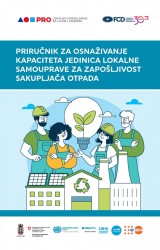 Manual for Strengthening the Capacities of Local Self-Government Units for the Employability of Waste Pickers
Manual for Strengthening the Capacities of Local Self-Government Units for the Employability of Waste Pickers
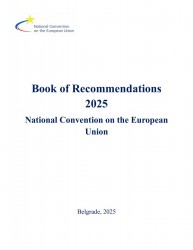 NCEU Book of Recommendations 2025
NCEU Book of Recommendations 2025
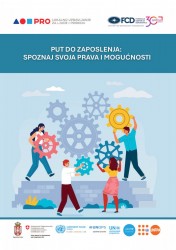 Manual “The Path to Employment: Get to Know Your Rights and Opportunities”
Manual “The Path to Employment: Get to Know Your Rights and Opportunities”
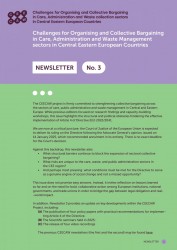 Challenges for Organising and Collective Bargaining in Care, Administration and Waste collection sectors in Central Eastern European Countries
Challenges for Organising and Collective Bargaining in Care, Administration and Waste collection sectors in Central Eastern European Countries
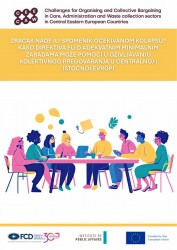 Public Policy Proposals – Collective Bargaining (CEECAW)
Public Policy Proposals – Collective Bargaining (CEECAW)
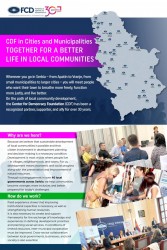 CDF in Cities and Municipalities: Together for a Better Life in Local Communities
CDF in Cities and Municipalities: Together for a Better Life in Local Communities
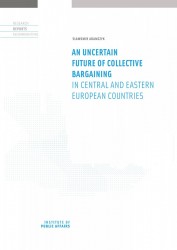 Comparative reports on collective bargaining - CEECAW
Comparative reports on collective bargaining - CEECAW
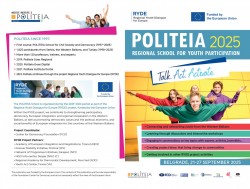 POLITEIA – Regional School for Youth Participation 2025 (leaflet)
POLITEIA – Regional School for Youth Participation 2025 (leaflet)
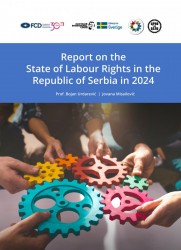 Report on the State of Labour Rights in the Republic of Serbia in 2024
Report on the State of Labour Rights in the Republic of Serbia in 2024
 Unlocking Collective Bargaining Power in Three Sectors: A Call to Action
Unlocking Collective Bargaining Power in Three Sectors: A Call to Action
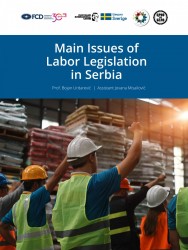 Main Issues of Labor Legislation in Serbia
Main Issues of Labor Legislation in Serbia
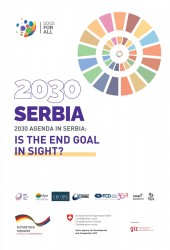 New Monitoring Report by the “SDGs for All” Platform: Is the End Goal in Sight?
New Monitoring Report by the “SDGs for All” Platform: Is the End Goal in Sight?
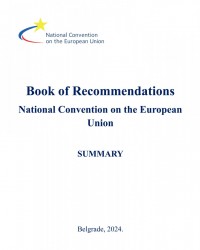 NCEU Book of Recommendations 2024 (Summary)
NCEU Book of Recommendations 2024 (Summary)
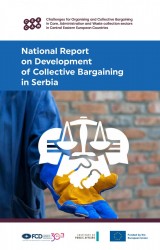 National reports on collective bargaining in Serbia - CEECAW
National reports on collective bargaining in Serbia - CEECAW
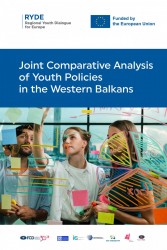 The Comparative Analysis of Youth Policies in the Western Balkans (WB)
The Comparative Analysis of Youth Policies in the Western Balkans (WB)
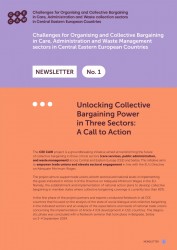 Unlocking Collective Bargaining Power in Three Sectors: A Call to Action
Unlocking Collective Bargaining Power in Three Sectors: A Call to Action
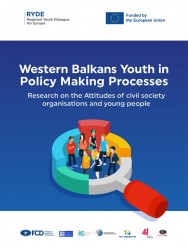 Western Balkans Youth in Policy Making Processes
Western Balkans Youth in Policy Making Processes
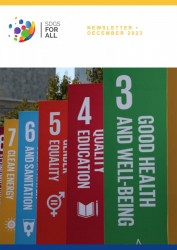 SDGs for All Platform newsletter (December 2023)
SDGs for All Platform newsletter (December 2023)


